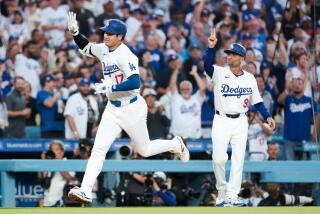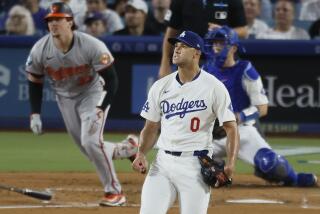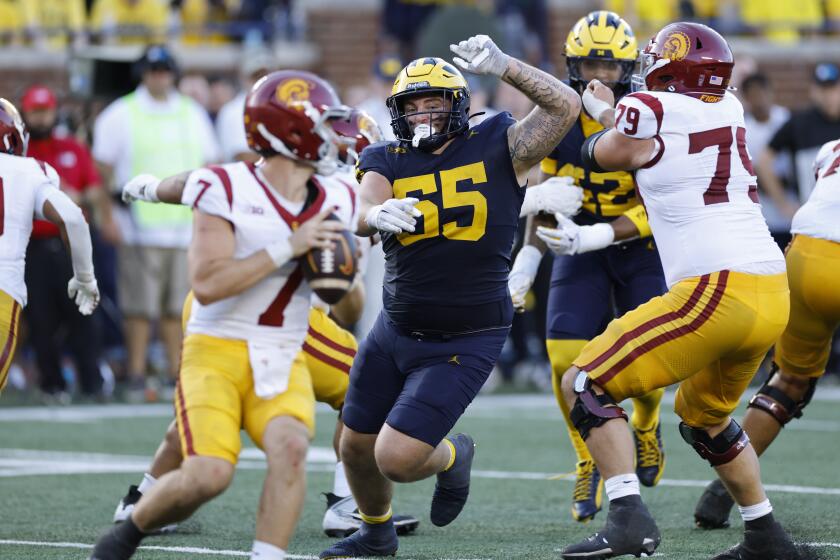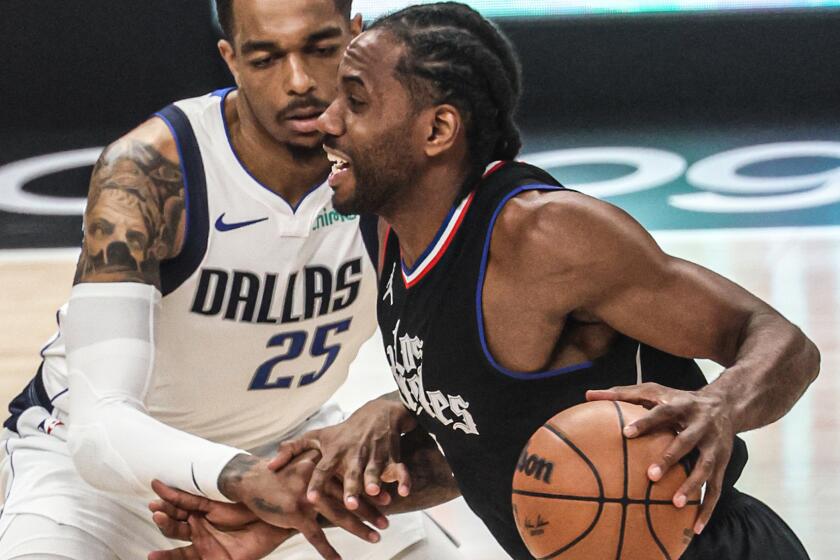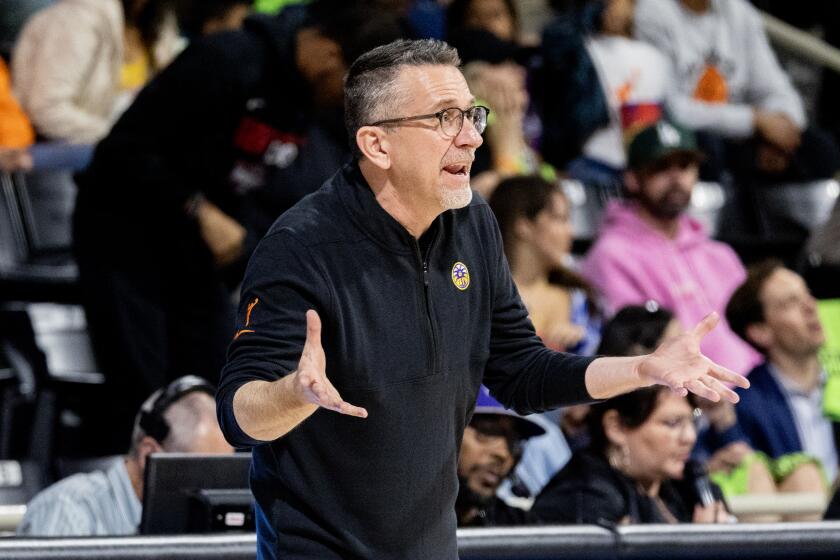Wild-card game could be a Baltimore chop
Roberto Alomar took a called third strike, and the Baltimore Orioles were eliminated from the playoffs. The date was Oct. 15, 1997.
The management of the Orioles has been borderline incompetent since then. Baseball’s most beautiful ballpark deteriorated into a ghost town, the anger among fans evolving into frustration and alienation. The Orioles endured losing season after losing season — 14 in a row — until this magical year.
The Orioles are back in the playoffs for the first time since Alomar took strike three. There might be no more heartening sight in baseball than Camden Yards, with its vitality restored, all dressed up for the first postseason game in Baltimore in 15 years.
Except there might not be one.
The Orioles open the playoffs Friday, in Texas, at 8:30 p.m. EDT. By the time the clock strikes midnight in Baltimore, the Orioles’ season could be over.
That is a disheartening side effect of an otherwise remarkably successful postseason makeover.
The Orioles won 93 games, and here is their reward: a winner-take-all game against Yu Darvish, the phenomenal rookie right-hander from Japan. The Orioles never have faced him. By the time they figure him out, it might be too late.
Baseball has properly resisted calls for a neutral-site, warm-weather World Series. The postseason belongs to the home fans — except, perhaps, to the fans of Baltimore, should their team lose Thursday.
“I understand the heartbreak,” Commissioner Bud Selig said Thursday.
When Selig and his 14-member committee agreed to add a second wild-card entry to the playoff field, that left this question: Should the two wild cards face each other in a one-game playoff, or in a best-of-three series?
“The one thing I wanted that none of them did was two out of three,” Selig said. “I’m conservative. I’m cautious. I know from living it: You play all year.
“The managers — every one of them — wanted one and done.”
The managers on the committee included the Angels’ Mike Scioscia, who complained long and loud that too many postseason days off distorted the strengths and weaknesses of teams in an everyday sport. If you cannot win with a three-man rotation during June, he argued, why should you be able to win with a three-man rotation in October?
The San Francisco Giants closed the regular season Wednesday at Dodger Stadium in a game that had no playoff implications. Yet Giants Manager Bruce Bochy started his regulars, explaining that San Francisco would not open the playoffs until Saturday, and he did not want to disrupt the routine of his hitters any more than necessary.
If the wild-card teams played a best-of-three series, Bochy and the Giants would have had to wait a week to get started. That might have lessened the Giants’ resolve to win their division.
Baseball had seen enough of disincentives for winning the division. The St. Louis Cardinals won the World Series as a wild-card team last season. The Angels won as a wild card in 2002, the first of six consecutive years a wild-card team appeared in the World Series.
The wild card carried no significant disadvantage. The wild card got one of four playoff bids in each league, with every team slotted into a best-of-five series.
Teams got the hang of the system. Why push to win the division if you could win the wild card, rest your starters and line up your pitchers for the playoffs?
The one-and-done game is the answer. The one-and-done game is why the Orioles started Chris Tillman on Wednesday, even with a wild-card ticket punched, in a desperate bid to catch the New York Yankees for the division title.
The Yankees, in the same situation, used Hiroki Kuroda on Wednesday. They won. They got three days to rest, and to replenish their pitching.
Under the new playoff system, the National League remained relevant into the final 48 hours of the season, with the Dodgers and Cardinals fighting for the second wild-card spot. Under the old system, the NL would have been all but settled weeks ago.
In the American League, the divisions were won by one, two and three games, with the Angels and Tampa Bay Rays keeping faith alive with late runs.
“I’m thrilled with the way the last month came out,” Selig said. “In my wildest dreams, I couldn’t have imagined it would come out like this, with the drama of the last 10 days — the high drama — in Baltimore, in New York, in Atlanta, in St. Louis, in Detroit, in Chicago, with the Dodgers.”
Selig is part executive, part evangelist for his sport. He thought the new playoff format would go over well — but not this well, this soon.
“It has created interest the likes of which we couldn’t have dreamed,” he said.
The fans of Baltimore are thankful, at least for the next few hours.
twitter.com/BillShaikin
More to Read
Go beyond the scoreboard
Get the latest on L.A.'s teams in the daily Sports Report newsletter.
You may occasionally receive promotional content from the Los Angeles Times.

